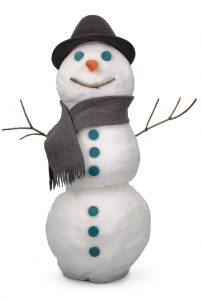
Are we in for our third consecutive mild winter or will the frigid weather return? Well, it depends on who you talk to or where you get your information.
Do you believe the directors of NOAA (National Oceanic and Atmospheric Administration) or those who have been talking about the color and size of the “wooly” worms? The NOAA says our area may be colder than last year, but it still will be considered a “mild” winter.
The Farmers’ Almanac also says it will be colder, but not too much colder than usual, and precipitation will be at above normal levels.
The actual weather we receive will have a big impact on our electric bills as they are predominately driven by weather and consumer use patterns. The bottom line is that we want to be comfortable.
To give you an accurate picture of how the outside temperature relates to our comfort level, the National Weather Service uses “degree days” to define the margin between the average outdoor temperature and a baseline of 65 degrees, which is considered to be a comfortable temperature with no heating or cooling devices needed. Heating degree days are a measure of the severity and duration of cold weather; the colder the weather over a given period, the higher the cumulative heating degree day value.
The cumulative degree days for the winters of 2015 and 2016 were more than 30 percent lower than the winter of 2014 and were the two mildest winters, by degree day standards, in the last 14 years. Will this mild weather trend be broken this winter?
Even with careful management of your energy use, your bill may still be higher than normal in winter months.
- The weather makes a big impact on electric bills, accounting for nearly half of your bill.
- Even those with the most efficient HVAC systems will see more use in extreme weather.
- When extreme cold temperatures hit, our heaters work overtime.
- For example, even if you set your thermostat to our recommended 68 degrees in the winter, when it is 19 degrees outside, your system has to work hard to make up that 49-degree difference.
- Your heater works harder and cycles on and off more often, making your use much higher. That means your bill will be much higher.
- Remember: There is value in comfort. For us to be comfortable in our homes, our heaters are going to work harder, but it may be worth the additional cost to you.
Winter weather can be unpredictable, and planning ahead can make a difference in whatever Mother Nature has in store this year.



